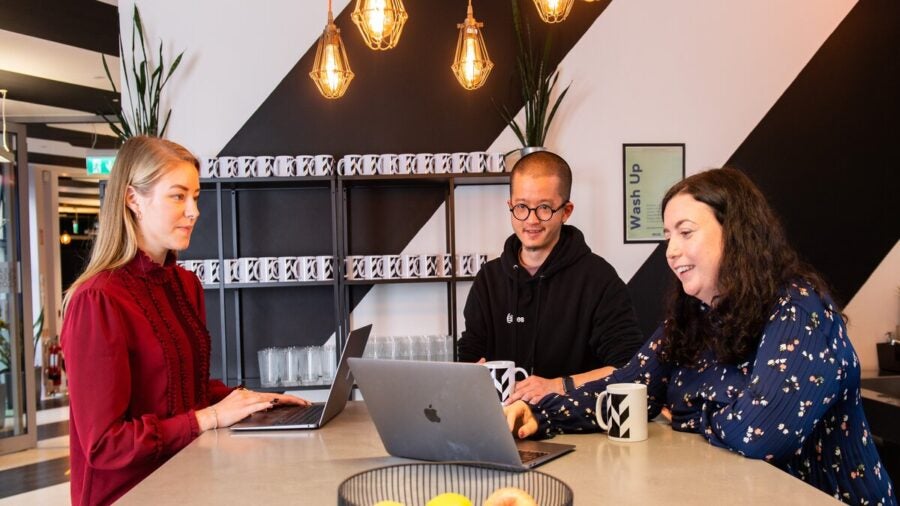
The Covid-19 crisis transformed perceptions of remote working. Much of the capability already existed to enable secure access to workplace tools from home, driven by improved technology, the rise of cloud computing and high-speed broadband. But it took a global pandemic to demonstrate to more traditional companies that their workforce could remain highly productive when not in the office.
The return to a sense of normality has triggered varying degrees of retreat back to offices, with half of companies expecting staff back five days a week, recent research by Microsoft found. Empowered by the flexibility remote working provides, however, many workers are resisting, according to a Manpower study that the government observes as a key economic indicator.
Amid a talent shortage in many parts of the economy, most workers have made it clear that they value a hybrid approach to working. Crucially, companies that scaled quickly through the pandemic have shown remote working is more conducive to growing in a thoughtful, efficient way.
All of a sudden we were able to do interviews with people anywhere in the world … We wouldn’t have had access to all this talent or embraced that distribution if we’d been in an office
Tines, a no-code automation platform for security teams, is a prime example. The Dublin-based company had just five employees before Covid-19. It now has 150 and believes the remote working model, though initially forced on the company, has been vital to its success.
“I don’t think we would have been able to grow that fast if we had been constrained to working in an office,” says Eoin Hinchy, co-founder and CEO at Tines. “All of a sudden we were able to do interviews with people anywhere in the world. We employ people in 10 different time zones, four continents and 13 US states. We wouldn’t have had access to all this talent or embraced that distribution if we’d been in an office.”
Tines has relied on automation to onboard new employees globally, while maintaining a leanness that other fast-growing startups often struggle with. Every part of the hiring process, including identifying the need and budget, posting job descriptions, managing interviews and feedback, making job offers and sending contracts, is automated and handled through the Tines platform.
This makes the hiring experience for both candidates and those involved in the recruitment process far more seamless and efficient. But then, of course, there is the security element to consider, something that has historically deterred companies from embracing remote working.
The State of Pentesting 2022 report from Cobalt found that 54% of security professionals want to quit their jobs, largely because they feel tired and overwhelmed by trying to ensure other departments are following security recommendations. The Tines platform removes a lot of this stress by automatically responding to and remediating security alerts in real time, as well as managing access to the data, systems, and hardware that employees need to do their job.
“I fundamentally believe that working in security should be the best job in the world,” says Hinchy. “It has all the ingredients to be an extraordinarily satisfying career, yet so many people want to leave the profession because a lot of the time you’re heavily dependent on other teams for your success. Even though you’re accountable for security, a lot of what you do is informing other teams and giving recommendations for how they can do their jobs in a more secure way.
“It’s very stressful when you don’t have much control over the principal thing you’re responsible for. No-code automation can dramatically improve that because there’s no room for manual complacency or error from teams out of your control. Meanwhile other departments aren’t fretting about the security team breathing down their neck, so relationships are much better.
“Companies can’t turn back the clock on remote working. It’s here to stay, and that’s a good thing for productivity and employee satisfaction, but no-code automation is going to be crucial to doing it in a secure, efficient way.”
For more information, visit tines.com

The Covid-19 crisis transformed perceptions of remote working. Much of the capability already existed to enable secure access to workplace tools from home, driven by improved technology, the rise of cloud computing and high-speed broadband. But it took a global pandemic to demonstrate to more traditional companies that their workforce could remain highly productive when not in the office.
The return to a sense of normality has triggered varying degrees of retreat back to offices, with half of companies expecting staff back five days a week, recent research by Microsoft found. Empowered by the flexibility remote working provides, however, many workers are resisting, according to a Manpower study that the government observes as a key economic indicator.
Amid a talent shortage in many parts of the economy, most workers have made it clear that they value a hybrid approach to working. Crucially, companies that scaled quickly through the pandemic have shown remote working is more conducive to growing in a thoughtful, efficient way.

